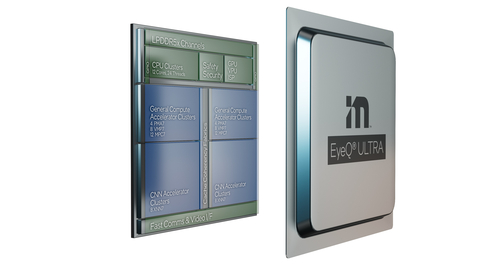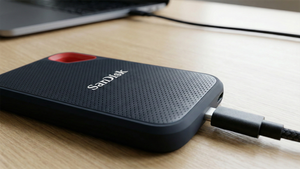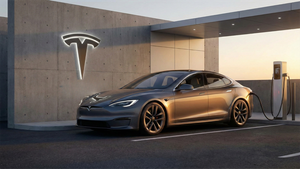Single-package design will deliver industry’s leanest, most performance-power efficient SoC for fully autonomous vehicles.
NEWS HIGHLIGHTS
- Mobileye introduces EyeQ® Ultra™ – a single package AV-on-chip super-computer that is purpose-built for end-to-end autonomous driving.
- Proven Mobileye EyeQ® architecture underpins EyeQ Ultra, maximizing performance and efficiency at 176 TOPS (tera operations per second).
- First silicon for the EyeQ Ultra is expected in late 2023 with full automotive-grade production in 2025.
- Mobileye also introduces the next-generation EyeQ system-on-chip (SoC) for advanced driver-assistance systems (ADAS): EyeQ6L and EyeQ6H.
Mobileye today introduced the EyeQ® Ultra™, the company’s most advanced, highest performing system-on-chip (SoC) purpose-built for autonomous driving. As unveiled during CES 2022, EyeQ Ultra maximizes both effectiveness and efficiency at only 176 TOPS, making it the industry’s leanest autonomous vehicle (AV) chip. This efficiently designed SoC builds on seven generations of proven EyeQ architecture to deliver exactly the power and performance needed for AVs, which are all but certain to be all-electric vehicles.
This press release features multimedia. View the full release here: https://www.businesswire.com/news/home/20220104005334/en/

Mobileye introduces the EyeQ Ultra, the company’s most advanced, highest performing system-on-chip purpose-built for autonomous driving. Unveiled at CES 2022, EyeQ Ultra maximizes both effectiveness and efficiency, making it the industry’s leanest autonomous vehicle chip. (Credit: Mobileye, an Intel Company)
First silicon for the EyeQ Ultra SoC is expected at the end of 2023, with full automotive-grade production in 2025.
“Consumer AV is the end game for the industry,” said Prof. Amnon Shashua, Mobileye president and chief executive officer. “By developing the entire self-driving solution – from hardware and software to mapping and service models – Mobileye has a unique perspective into the exact requirements for the self-driving system that enables us to reach the performance-and-cost optimization that will make consumer AVs a reality.”
More: Mobileye at CES 2022 (Press Kit)
Mobileye designed the EyeQ Ultra after having first built an AV to understand exactly what a self-driving vehicle needs to operate at a very high meantime between failures. This approach enables the optimum balance of performance across different accelerators and general-purpose processors in an extremely efficient power-performance envelope.
Delivering Unmatched Cost-to-Performance
Marking a leap in the evolution of the EyeQ family of SoCs, EyeQ Ultra packs the performance of 10 EyeQ5s in a single package. Leveraging 5 nanometer process technology, EyeQ Ultra can handle all the needs and applications of Level 4 (L4) autonomous driving without the power consumption and costs related to integrating multiple SoCs together. Like its EyeQ predecessors, EyeQ Ultra has been engineered in tandem with Mobileye software, enabling extreme power efficiency with zero performance sacrifices.
EyeQ Ultra utilizes an array of four classes of proprietary accelerators, each built for a specific task. These accelerators are paired with additional CPU cores, ISPs and GPUs in a highly efficient solution capable of processing input from two sensing subsystems – one camera-only system and the other radar and lidar combined – as well as the vehicle’s central computing system, the high-definition map and driving policy software. At a mere 176 TOPS, the EyeQ Ultra is much more efficient than other AV solutions, delivering the necessary performance and price-point required for consumer-level AVs.
By optimizing for efficiency, EyeQ Ultra unlocks the AV potential for safer roads and reduced congestion for consumers.
Evolution of the EyeQ Architecture
The introduction of EyeQ Ultra comes at the same time as two new EyeQ SoCs for ADAS – the EyeQ6L and EyeQ6H – and follows the shipment of Mobileye’s 100 millionth EyeQ SoC late last year. First introduced in 2004, Mobileye’s EyeQ transformed the ADAS market by proving that cost-effective camera sensors processed by Mobileye’s purpose-built technology were capable of preventing and mitigating collisions. The innovation of EyeQ helped make roadway safety technology more accessible, bringing features including forward-collision warning, lane departure warning and blind spot detection to millions of drivers around the world.
Mobileye’s proven EyeQ architecture lays the foundation for EyeQ Ultra. Designed to make consumer AVs accessible, EyeQ Ultra fills a void in the automotive market as the EyeQ family of SoCs has done before it. As an extension of the EyeQ family, EyeQ Ultra will also be informed by Mobileye’s Road Experience Management™ (REM) mapping technology. Gathered via millions of vehicles on the road already equipped with Mobileye, REM captures packages of road data to create the Mobileye Roadbook™, which is accessed via the cloud to provide, in real time, up-to-date information on the drivable paths ahead.
Two New EyeQ SoCs for Next-Generation ADAS
The EyeQ6L will be the successor to the EyeQ4 SoC in a package that is just 55 percent the size of the EyeQ4. This one-box windshield solution delivers more deep-learning TOPS at ultra-low power for highly efficient entry and premium (L2) ADAS. It began sampling last year and is due to reach start of production by the middle of 2023.
The EyeQ6H will support premium ADAS or partial AV capabilities with full surround. It is equivalent to two EyeQ5 SoCs in terms of computing power but more importantly supports visualization and performs better under heavy artificial intelligence workloads. This centralized solution will provide all ADAS L2+ functionalities, multi-camera processing (including parking cameras), and will host third-party apps such as parking visualization and driver monitoring. This most advanced ADAS SoC in the EyeQ family will begin sampling this year and is due to begin production by the end of 2024.
Both EyeQ6 SoCs will be manufactured on 7nm process technology.
More Context
As Mobileye continues to execute its plan to enable autonomous driving, the versatility and scalability of the company’s portfolio comes into view. Mobileye recently shipped its 100 millionth EyeQ SoC, unveiled its production robotaxi, and scaled its autonomous vehicle testing across multiple cities around the world including in the U.S., Europe and Asia.
About Intel
Intel (Nasdaq: INTC) is an industry leader, creating world-changing technology that enables global progress and enriches lives. Inspired by Moore’s Law, we continuously work to advance the design and manufacturing of semiconductors to help address our customers’ greatest challenges. By embedding intelligence in the cloud, network, edge and every kind of computing device, we unleash the potential of data to transform business and society for the better. To learn more about Intel’s innovations, go to newsroom.intel.com and intel.com.
About Mobileye
Mobileye is leading the mobility revolution with its autonomous driving and driver-assist technologies, harnessing world-renowned expertise in computer vision, machine learning, mapping and data analysis. Our technology enables self-driving vehicles and mobility solutions, powers industry-leading advanced driver-assistance systems and delivers valuable intelligence to optimize mobility infrastructure. Mobileye pioneered such groundbreaking technologies as True Redundancy™ sensing, REM™ crowdsourced mapping, and Responsibility Sensitive Safety (RSS) technologies that are driving the ADAS and AV fields toward the future of mobility. For more information: www.mobileye.com.
Forward-Looking Statements
Statements in this press release that refer to future plans and expectations are forward-looking statements that involve a number of risks and uncertainties. Words such as “anticipates,” “expects,” “intends,” “goals,” “plans,” “believes,” “seeks,” “estimates,” “continues,” “may,” “will,” “would,” “should,” “could,” and variations of such words and similar expressions are intended to identify such forward-looking statements. Statements that refer to or are based on estimates, forecasts, projections, uncertain events or assumptions, including statements relating to future products and technology and the availability and benefits of such products and technology, expectations regarding customers, market opportunity, and anticipated trends in our businesses or the markets relevant to them, also identify forward-looking statements. Such statements are based on current expectations and involve many risks and uncertainties that could cause actual results to differ materially from those expressed or implied in these forward-looking statements. Important factors that could cause actual results to differ materially are set forth in Intel’s SEC filings, including the company’s most recent reports on Forms 10-K and 10-Q, which may be obtained by visiting our Investor Relations website at www.intc.com or the SEC’s website at www.sec.gov. Intel does not undertake, and expressly disclaims any duty, to update any statement made in this press release, whether as a result of new information, new developments or otherwise, except to the extent that disclosure may be required by law.
© Intel Corporation. Intel, the Intel logo and other Intel marks are trademarks of Intel Corporation or its subsidiaries. Other names and brands may be claimed as the property of others.
View source version on businesswire.com: https://www.businesswire.com/news/home/20220104005334/en/
Contacts
Robin Holt
1-503-616-1532
robin.holt@intel.com





